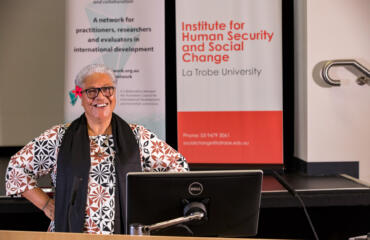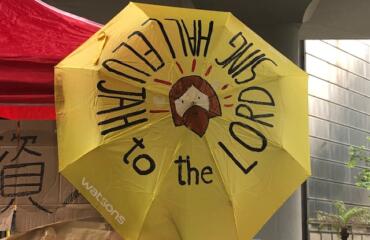A not-for-profit advocacy group, Environment Victoria, is working with online activist GetUp!, local environmental groups and around 400 volunteers to raise awareness of green issues in the key marginal electorates of Frankston, Carrum, Mordialloc and Forest Hill.
The group’s chief executive, Mark Wakeham, hailed the poll push “the biggest, most targeted election campaign” that Environment Victoria had undertaken.
The group had analysed voting records in each of the targeted electorates to identify the areas with the highest proportion of swinging voters.
“We want to make sure if we’ve got volunteers out on a Saturday knocking on doors, that they are the right doors,” Mr Wakeham said.
Environment Victoria was asking undecided voters to sign a pledge saying they were willing to change their vote based on environmental issues.
“The best outcome would be for us to know we’ve built a relationship with large numbers of undecided voters in each electorate [who have] pledged to vote with the environment front of mind.” — Mark Wakeham, Environment Victoria
After redistributions, Carrum has a notional margin of 0.3 per cent, Frankston 0.4 per cent and Mordialloc 1.5 per cent. Carrum and Mordialloc are held by the Liberal Party, while Frankston faces an uncertain three-way battle between independent Geoff Shaw, Labor’s Paul Edbrooke and Liberal candidate Sean Armistead.
Forest Hill, in the heart of Environment Victoria’s eastern suburbs supporter base, is held by the Liberals with a notional margin of 3.5 per cent.
While the group claims it is not campaigning for or against any particular party, it has strongly criticised the Coalition Government for its policies over the past four years.
“We believe that any party that doesn’t have a strong policy around climate change doesn’t deserve to be in office,” Mr Wakeham said.
He told UniPollWatch that his organisation’s campaign was motivated by the knowledge that most elections were decided by a few key electorates.
“The south-east suburbs were critical to the outcome of the last state election,” he noted.
Adrian Beaumont, a researcher on political polling in the Department of Mathematics and Statistics at the University of Melbourne, said that it was possible, but unlikely, that the campaign could help decide the election.
The four electorates being targeted had below average votes for the Greens at the 2010 state poll.
“I don’t think those seats are all that fertile for environmental issues,” he said.
Unipollwatch has also observed that, anecdotally at least, concerns about public transport and schools appear to rank foremost in the minds of many voters in suburban electorates such as Forest Hill.
Mr Beaumont said Forest Hill was unlikely to decide the election, but the bayside seats were more marginal.
“If Labor wins one of these by a handful of votes, and wins the election by that one seat, then you could say that the environmental campaign helped Labor win,” he said. “But very close elections are comparatively rare.”
However, Mr Wakeham views the perceived lack of support for environmental groups in the targeted electorates as a positive. “There is a real opportunity to increase our supporter base,” he said.
The volunteers are using door knocks, phone calls, street stalls and mail outs in their campaign. Environment Victoria has also set up an ‘Enviro Hub’ shopfront in Frankston as a base for its volunteers working in the bayside electorates.
Mr Wakeham said the Hub was a “cost-effective way of being visible in the community”.
“I don’t think those seats are all that fertile for environmental issues.” — Adrian Beaumont, researcher
Environment Victoria’s community managers Claire van Herpen (Forest Hill) and Jane Stabb (Frankston, Carrum and Mordialloc), said they had recruited and trained 130 and 270 volunteers respectively.
The group had spoken to most of the Labor and Liberal candidates in the four seats.
Mr Wakeham said he had no doubt that the leadership of the major parties was taking notice of the campaign.
Ms Stabb said her organisation wanted to be able to go back to the parties and say: “We have the votes that could turn the election.”
Mr Wakeham said Australian environmental groups had not conducted such a campaign very effectively in the past. He said Environment Victoria was drawing from the grass roots environmental activism pioneered by Sierra Club in the US.
“The most powerful thing is face-to-face conversations with trusted locals,” he said.
He added that the campaign was partly about getting the environment onto the agenda for the state election and partly about building a supporter base in marginal electorates.
“The best outcome would be for us to know we’ve built a relationship with large numbers of undecided voters in each electorate [who have] pledged to vote with the environment front of mind.”



